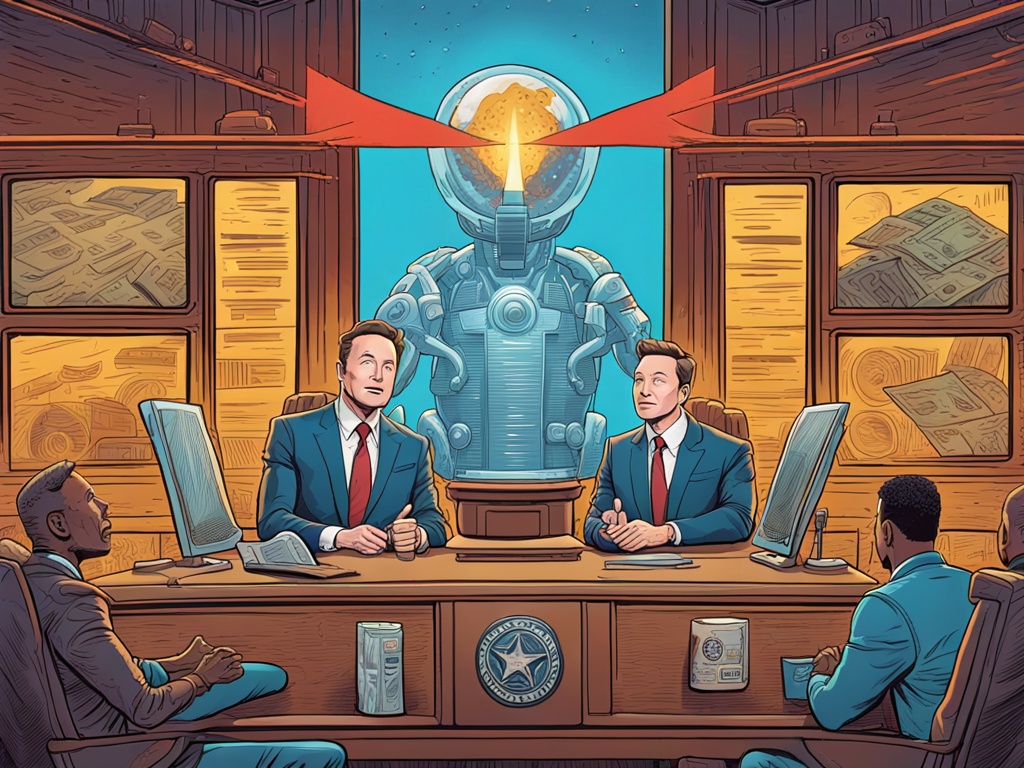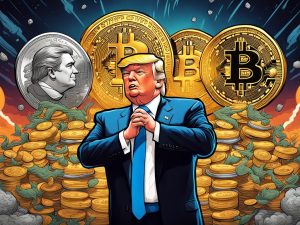SEC’s Recent Developments with Elon Musk ⚖️
In a surprising turn of events, SEC Chair Gary Gensler has officially made a settlement demand towards Elon Musk. He has indicated potential legal ramifications unless Musk settles within a mere 48 hours. Reports suggest the Securities and Exchange Commission is gearing up for multiple charges against Musk, although the precise details remain unclear, particularly concerning the companies involved.
Investigation into Neuralink🧠
The SEC is casting its investigative net over Neuralink, Musk’s venture focused on brain-computer interface technology. A recent communication from the SEC noted the reopening of its inquiry into Neuralink this week. Furthermore, it disclosed that Musk’s attorney, Alex Spiro, has received a subpoena from the SEC, with mentioned threats of a process server if he doesn’t comply.
In light of ongoing scrutiny, Musk expressed his frustration publicly through his X account, characterizing the SEC as “just another weaponized institution doing political dirty work.”
Disclosure Delays and Legal Framework 📉
For those not in the loop, this scrutiny stems from Musk’s delayed announcement of his 9.2% ownership stake in Twitter. He officially disclosed this ownership on April 4, 2022, approximately ten days after crossing the 5% legal threshold for public disclosure.
According to the Hart-Scott-Rodino Act, any entity acquiring at least 5% of a public firm is mandated to report this acquisition within ten days. In May 2024, Musk agreed to provide testimony for the SEC’s investigation; however, he did not adhere to a request for a deposition, prompting the SEC to pursue sanctions through a San Francisco court.
Expert Opinions on SEC’s Actions 💬
Legal experts have begun responding to Gensler’s latest move, and one notable voice among them is pro-XRP lawyer John Deaton. He highlighted the treatment of one of the world’s wealthiest individuals, questioning how small businesses and entrepreneurs, lacking Musk’s resources, might fare under similar scrutiny.
Deaton referenced the SEC’s aggressive tactics in the LBRY case, noting that their pressure tactics almost led Jeremy Kauffman and LBRY to bankruptcy before any legal suit was even initiated. He emphasized that Ripple and its CEO Brad Garlinghouse have invested over $150 million defending themselves in a situation that revolved around regulatory write-ups and not fraud itself. Such enormous expenses reflect the dire circumstances that many companies would face if subjected to similar legal battles without Musk’s financial backing.
Implications of SEC’s Approach 🚨
The SEC’s increasingly assertive approach has raised alarms about the implications for broader regulations surrounding financial markets and startups. As the Commission appears heavily focused on major players like Musk, smaller firms and new ventures could feel the weight of enhanced scrutiny. What does this mean for innovation and entrepreneurship moving forward?
- Possibility of stifled innovation due to fear of regulatory repercussions
- Disparity in resource allocation for legal defenses between large corporations and startups
- Potential for increased civil litigation as companies seek to navigate the uncertain landscape
Hot Take: What Lies Ahead for Musk and the SEC? 🔮
The SEC’s engagement with Musk serves as a pivotal moment in its regulatory trajectory. It raises pressing questions about the balance between enforcement and entrepreneurship. Will this friction lead to a reevaluation of regulatory practices, especially concerning tech innovators, or will it merely solidify the current climate of compliance stress? As Musk navigates these turbulent waters, the attention from stakeholders industry-wide will undoubtedly influence future interactions between regulators and the innovative sector.





 By
By
 By
By
 By
By
 By
By

 By
By